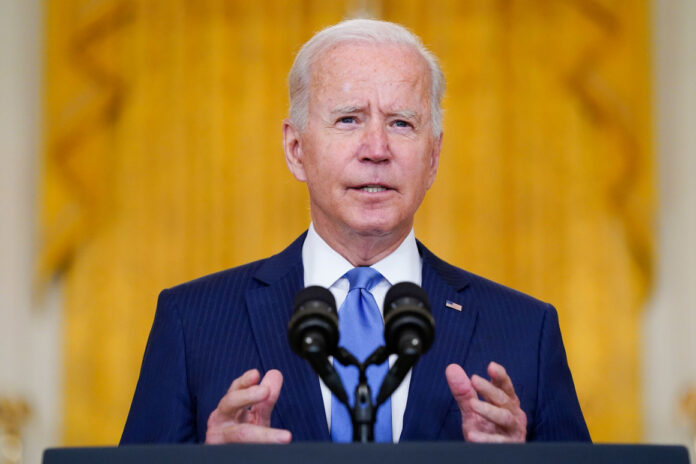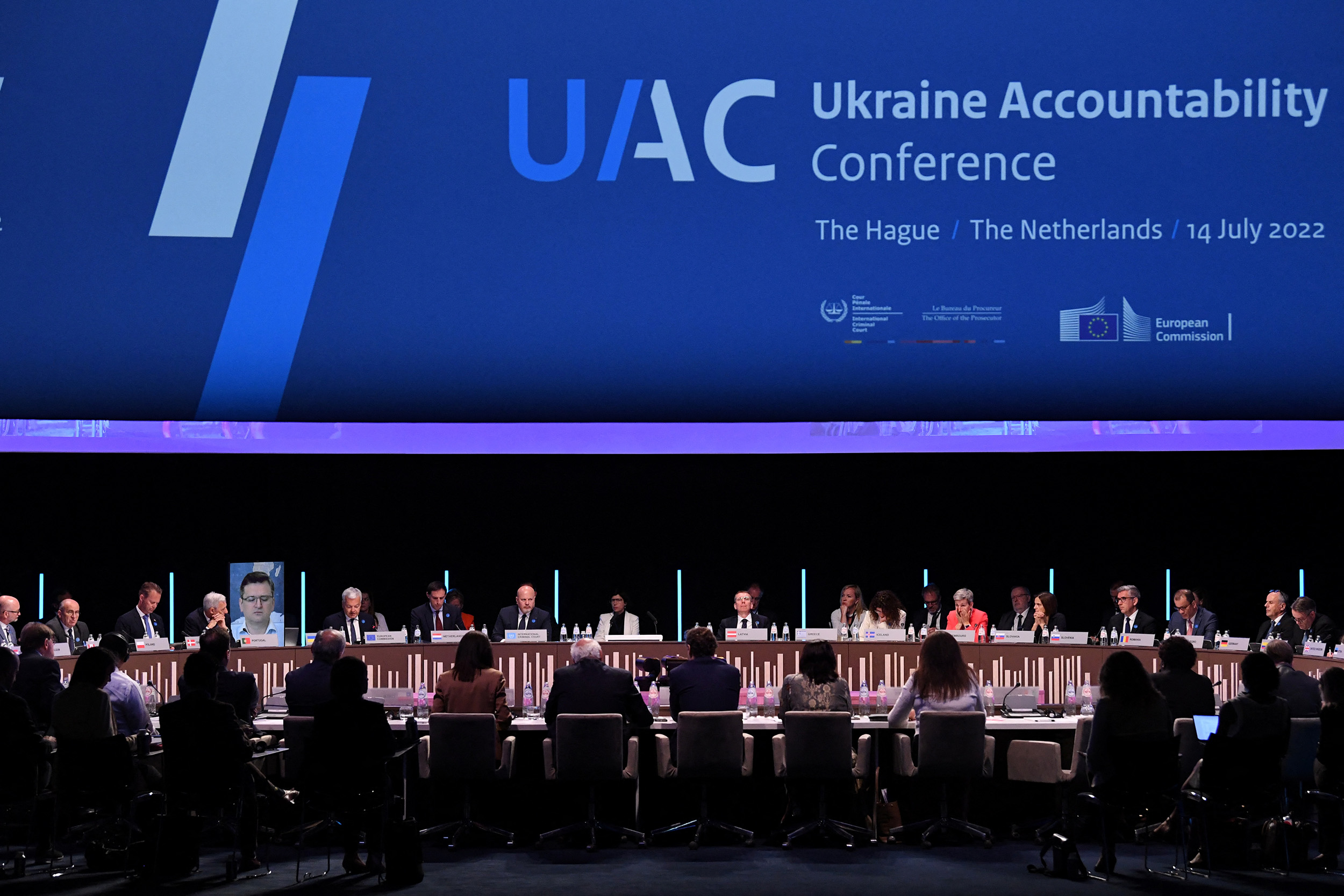Feature
RUSSIA VS UKRAINE: WHAT WILL HAPPEN IF THE WAR CONTINUES?

By Matthew Eloyi – The fact that Russia launched a military invasion of Ukraine on February 24, 2022, in a massive escalation of the Russo-Ukrainian conflict that began in 2014, is no longer news. It is Europe's
biggest military confrontation since World War II. The invasion resulted in the largest refugee
crisis in Europe since then, with over 3.1 million Ukrainians fleeing the country.
The conflict, which has continued to linger, is a big setback for the global economy, causing
growth to slow and prices to rise. Aside the misery and humanitarian disaster caused by Russia's
invasion of Ukraine, the world economy as a whole will suffer from weaker development and
higher inflation, if the war continues in the next six months.
There will be three major channels through which the effects will be felt. One, increasing costs
for commodities such as food and energy will drive inflation higher, diminishing the value of
incomes and putting downward pressure on demand. Two, adjacent economies will face
disruptions in commerce, supply chains, and remittances, as well as an unprecedented increase in
refugee movements. Finally, lower company confidence and increased investor uncertainty will
put downward pressure on asset values, tightening financial conditions and perhaps causing
capital outflows from emerging markets.
Russia and Ukraine are important commodity producers, and the interruptions have driven up
worldwide prices, particularly for oil and natural gas. Food prices have risen sharply, with wheat
shipments from Ukraine and Russia accounting for 30% of global exports.
Countries with direct trade, tourist, and financial exposures will face extra pressures in addition
to global spillovers. Oil-importing economies will experience larger fiscal and trade deficits, as
well as increased inflation pressure, though some exporters, such as those in the Middle East and
Africa, may benefit from higher prices.
Increased food and fuel prices may exacerbate the danger of unrest in several countries, ranging
from Sub-Saharan Africa and Latin America to the Caucasus and Central Asia, while food
insecurity in parts of Africa and the Middle East is likely to worsen.
In Ukraine, the toll has already been enormous. Unprecedented sanctions against Russia will
stifle financial intermediation and trade, resulting in a deep recession in the country. The fall of
the ruble is boosting inflation, further lowering people's living standards.
Because Russia is a major source of natural gas imports, energy is the primary spillover channel
for Europe. Wider supply-chain disruptions could have serious consequences. These
repercussions will exacerbate inflation and slow the pandemic's recovery. Eastern Europe will
face increased finance costs as well as an influx of refugees. According to UN estimates, it has
absorbed the majority of the 3 million refugees who recently evacuated Ukraine.
Additional spending on energy security and defense budgets could put economic strain on
European countries. While foreign exposure to Russian assets is small by global standards,
pressures on developing markets could increase as investors seek safer havens.
African countries are also vulnerable to the war's consequences, owing to rising oil and food
costs, diminished tourism, and the possibility of problems accessing international credit markets.
The dispute arises at a time when most governments have limited policy options to mitigate the
shock's effects. This is expected to exacerbate socioeconomic pressures, public debt
vulnerability, and scarring from the pandemic, which was already wreaking havoc on millions of
homes and businesses. Record wheat prices are especially worrying for a region that imports
around 85% of its supplies, with Russia and Ukraine accounting for one-third of that.
The consequences of the war between Russia and Ukraine have already shaken not just those
countries, but also the region and the rest of the world. While some effects may take years to
manifest, there are already clear signs that the war and the resulting increase in the cost of
essential commodities will make it more difficult for policymakers in some countries to strike the
delicate balance between containing inflation and supporting the pandemic's economic recovery.
Education
Nafisa Spoke, the World Listened, And Nigeria Shined

Nafisa Spoke, the World Listened, And Nigeria Shined
By Matthew Eloyi
When I first read about 17-year-old Nafisa Abdullah Aminu emerging as the World Best in English Language Skills at the 2025 TeenEagle Global Finals in London, I paused, read it again, and then sat quietly, moved in a way I haven’t been in a long time. In that moment, I wasn’t just a Nigerian reading a piece of good news; I was a Nigerian filled with pride, hope, and a renewed belief in our greatness.
Let me be honest: in a country weighed down by insecurity, economic hardship, and a struggling educational system, it’s easy, too easy, to become cynical. But Nafisa’s victory pierced through that fog of despair and reminded me why I have always believed in this country, despite everything.
Think about it: this young girl, from Yobe State, a region often reduced to a footnote in conversations about insecurity and poverty, stood on a global stage in London, not just to participate, but to conquer. She didn’t just win a medal. She defeated over 20,000 participants from 69 countries, including from places where English is a first language.
Let that sink in.
As someone who has spent years writing, editing, and advocating for better education in Nigeria, I understand just how powerful and rare this kind of achievement is. I see myself in Nafisa, in her curiosity, her hunger for knowledge, and her refusal to be boxed in by circumstance. Her story makes me emotional, not just because it’s inspiring, but because it reminds me of the many gifted Nigerian children who never get the chance to shine. Nafisa represents them, and she represents what’s possible when we choose to invest in our youth.
I am also deeply moved by the humility and grace of the Aminu family, who publicly acknowledged the role of Governor Mai Mala Buni’s educational reforms and the impact of Nigerian Tulip International College in preparing their daughter for the global stage. This wasn’t a solo journey; it was a collective effort rooted in family values, good governance, and dedicated educators.
“We cannot take all the credit,” they said. And in that simple statement, they reminded me that when leadership, community, and family work together, magic happens.
Nafisa’s win isn’t just a win for Yobe State. It’s not even just a win for Nigeria. It’s a resounding answer to every doubt we’ve ever had about our potential as a nation. Her victory tells every Nigerian child that “you are enough, and the world will hear your voice if you dare to speak it.”
As I write this, I think about the millions of young girls in the North and across Nigeria who will see Nafisa’s face and think, “If she can do it, so can I.” That, right there, is the power of representation.
I join the growing chorus of voices calling for State and National Honours for Nafisa. We must celebrate her not just with headlines, but with action, by investing more in education, giving scholarships, and ensuring that no child with potential is left behind because of geography, gender, or poverty.
To Nafisa, if you ever read this, know that you didn’t just win a competition; you reignited a nation’s pride. You gave us something we desperately needed: a reason to believe again.
And to Nigeria, this is who we are: brilliant, resilient, and unstoppable when given a chance.
Nafisa didn’t just make Yobe proud. She made me proud. She made us proud.
Feature
NITDA’s Digital Revolution: Catalysing Nigeria’s Renewed Hope Agenda Through Technology

NITDA’s Digital Revolution: Catalysing Nigeria’s Renewed Hope Agenda Through Technology
“You can’t delegate digital transformation for your company… You and your executives have to own it! Executives need to engage, embrace and adopt new ways of working with the latest and emerging technologies.” – Barry Ross
By Matthew Eloyi
As Nigeria forges ahead under the leadership of President Bola Ahmed Tinubu, the promise of the Renewed Hope Agenda has found a remarkable champion in the National Information Technology Development Agency (NITDA). Tasked with the pivotal role of spearheading the nation’s digital transformation, NITDA’s performance in the last two years has exceeded expectations, setting a benchmark for innovation, digital inclusion, and socio-economic empowerment through technology.
From integrating digital literacy in schools to deploying state-of-the-art infrastructure and shaping policies that bolster Nigeria’s tech ecosystem, NITDA has played a central role in actualising the president’s vision of a prosperous, tech-driven Nigeria.
NITDA’s aggressive push to embed digital literacy at all levels of society is a bold declaration that the future belongs to those who can navigate the digital world. The agency collaborated with the Federal Ministry of Education to integrate digital literacy into the curriculum of primary and junior secondary schools across the country. This nationwide effort is expected to cultivate a generation of digitally fluent students, positioning them for the global digital economy.
Under its Digital Literacy for All initiative, NITDA launched massive training programmes across the six geopolitical zones. 166,199 beneficiaries were trained through the Digital Economy Employability Program (DEEP) in 2023, while 50,000 Nigerians acquired foundational digital skills through the DL4ALL initiative. These efforts are geared toward achieving 70% digital literacy by 2027 and 95% by 2030—a target fully aligned with the Renewed Hope Agenda’s ambition for widespread human capital development.
NITDA’s commitment to inclusivity is evident in its female-focused and specialised training programmes. Through the Female Founders Training (FFT) initiative, 30 women-led startups from all six geopolitical zones received entrepreneurial and digital skill training, contributing to bridging the gender gap in the tech ecosystem. Similarly, 402 young girls were empowered through the Gina Mata, Gina Al-Umma programme, which equipped them with skills in digital content creation.
On the occasion of the International Girls in ICT Day in 2024, the agency trained 100 secondary school girls, a clear testament to its commitment to women and girls’ inclusion in digital development. Under the Renewed Hope Initiative, 288 women completed digital skill training tailored to female entrepreneurs and professionals.
Additionally, NITDA targeted other crucial segments of the society. Artisans, farmers, teachers, and public servants were all included. Notably, 420 artisans across the country were trained in digital content creation and entrepreneurship, 200 teachers in four states received upskilling, and 813 public servants across 35 Ministries, Departments, and Agencies (MDAs) were trained on e-governance, paving the way for more responsive and efficient public service delivery.
Amid growing global cyber threats, NITDA took a proactive approach in enhancing Nigeria’s cybersecurity posture. 35,917 Nigerians completed CISCO-certified cybersecurity programmes in areas such as ethical hacking, endpoint security, and network defence.
October 2024 marked a significant milestone as NITDA organised a Cybersecurity Awareness Month filled with workshops, stakeholder collaborations, and media campaigns, all aimed at fostering safe online practices. The agency also supported innovation in the cybersecurity space by organising regional challenges across ECOWAS member states, with 5,341 participants and five innovative cybersecurity solutions presented.
In 2023 alone, NITDA thwarted 62 hacking attempts and 97 phishing incidents targeting federal MDA websites, showcasing its robust defensive capabilities. A total of 162 cyber threat detections were recorded, and 37 public advisories were issued, reinforcing public trust in the agency’s vigilance.
NITDA as the clearing House of IT Projects in Nigeria is mandated to clear all IT Projects in line with the policy objectives of the Federal Government to maximize transparency and accountability in carrying out IT Projects by Public Institutions. In 2023, a total of 181 IT Projects were cleared and ₦259,731,102,012.45 saved. The agency also cleared a total of 228 IT projects in 2024 and saved ₦5,037,482,512.72.
NITDA recognises that digital transformation cannot occur without robust infrastructure. In the last two years, it completed the deployment of 80 e-learning solutions and commissioned eight ICT community centres across states including Jigawa, Kano, Ogun, Oyo, Niger, Benue, Kwara, and Lagos. These centres serve as technology hubs, offering training and resources for underserved communities.
In 2023, a total of 28 Digital Economy Centres were operational across several states, including Adamawa, Akwa Ibom, Bauchi, Benue, Borno, Cross River, Delta, Ebonyi, Edo, Ekiti, Enugu, Gombe, Imo, Jigawa, Kaduna, Kano, Katsina, Kebbi, Kogi, Kwara, Lagos, Niger, Ogun, Osun, Oyo, Plateau, Sokoto, and the Federal Capital Territory (FCT). Additionally, nine Community IT Training Centres were active in Bauchi, Kaduna, Guni, Jigawa, Niger, Benue, Kano, Gombe, and Oyo. Expansion efforts for 2024 included the establishment of 22 new Digital Economy Centres in Abia, the FCT, Adamawa, Anambra, Bauchi, Borno, Ebonyi, Ekiti, Enugu, Gombe, Imo, Jigawa, Kaduna, Kano, Katsina, Kebbi, Lagos, Nasarawa, Ogun, Ondo, Osun, and the FCT.
The agency also completed a well-equipped CBT centre in Kogi State and ICT equipping projects in Gombe and the National Institute for Security Studies (NISS). Under the Outsource for Nigeria Initiative (OTNI), the Gombe project exemplifies how digital hubs can boost employment and skill acquisition in regions that traditionally lag behind in tech infrastructure.
NITDA has emerged as a thought leader in the formulation of policies that govern Nigeria’s digital ecosystem. The agency facilitated the development of an Artificial Intelligence (AI) strategy to position Nigeria in the global AI ecosystem, focusing on ethical adoption and national competitiveness.
Its IPv6 Adoption Summit was a forward-looking event aimed at ensuring Nigeria’s internet infrastructure aligns with global standards, catering to future connectivity demands.
Major tech firms: Meta, Google, TikTok, and X submitted compliance reports to NITDA, reinforcing the agency’s regulatory authority. NITDA also revised and audited the National Public Key Infrastructure (PKI), completed recertification of ISO27001:2013, and increased awareness on the Trustmark process for e-commerce providers, further establishing trust in Nigeria’s digital services.
Under the Nigeria Adopted Village for Smart Agriculture (NAVSA) initiative, 200 smallholder farmers have been onboarded and trained in precision agriculture and climate-smart farming practices. To date, more than 450 farmers have directly benefited from the program, with over 1,500 indirect jobs created as a result.
Through the Technology Innovation and Entrepreneurship Support Scheme (TIES), NITDA provided scholarships and funding opportunities, while also supporting startups at major global platforms such as GITEX North Star 2023. These efforts not only boosted the visibility of Nigerian innovations but also attracted foreign investment. Additionally, 10,943 beneficiaries were trained under the NITDA-Coursera partnership between 2023 and 2025.
In a related effort to boost global trade and startup growth, NITDA co-manages the Tech Export & Digital Trade Desk alongside Federal Ministry of Communications Innovations and Digital Economy (FMCIDE) and Federal Ministry of Industry Trade and Investment (FMITI), with a focus on expanding Nigerian startups through the African Continental Free Trade Area (AfCFTA) and global markets. Since its inception, the desk has engaged over 70 startups through two dedicated programs and facilitated more than 10 key connections between startups, partners, and regulators. The initiative also led to the development and dissemination of the AfCFTA Startup Guide and promoted a public-private partnership with NIPOST to enhance logistics for tech-driven trade.
NITDA’s active involvement in prominent global technology events—including GITEX, Digital Nigeria, and the International Conference on Theory and Practice of Electronic Governance (ICEGOV)—has significantly enhanced Nigeria’s international reputation in the tech space. Demonstrating its dedication to knowledge exchange and intellectual growth, the agency also sponsored five Nigerian researchers to participate in the 17th edition of ICEGOV, held in 2024 in Pretoria, South Africa.
The trajectory NITDA has charted under the Renewed Hope Agenda is one of audacity, vision, and inclusivity. It is a story of how a nation, through the resolve of a strategic agency, is reclaiming its future by digitising its present. Every classroom connected, every artisan trained, every woman empowered, and every cybersecurity threat neutralised is a testament to the agency’s transformative impact.
As the digital revolution gathers momentum, NITDA remains a cornerstone of Nigeria’s journey towards a resilient, knowledge-based economy. It is no longer a question of if Nigeria will lead Africa’s digital future—but how soon.
Feature
Bridging Innovation and Opportunity: NITDA’s Bold Digital Step in Southeast

Bridging Innovation and Opportunity: NITDA’s Bold Digital Step in Southeast
By Matthew Eloyi
In a decisive stride toward digital inclusivity and national development, the National Information Technology Development Agency (NITDA) has once again demonstrated its visionary leadership in Nigeria’s digital transformation journey with the commissioning of its South East regional office in Enugu. This development is not just another bureaucratic expansion—it is a landmark initiative poised to catalyze innovation, bridge regional opportunity gaps, and empower the Southeast with the tools needed for success in the 21st-century digital economy.
At the heart of this bold step is a clear mandate: to bring the digital economy closer to Nigerians across all geopolitical zones. The newly inaugurated office, commissioned by Governor Peter Mbah of Enugu State and graced by the Minister of Communications, Innovation and Digital Economy, Dr. Bosun Tijani, is designed to function as a strategic hub for digital skills development, startup support, regulatory advisory, and multilateral partnerships.
What sets this move apart is the deliberate alignment with President Bola Ahmed Tinubu’s Renewed Hope Agenda. It is no coincidence that Dr. Tijani described the event as “far more than the opening of a building,” but rather “the establishment of a permanent bridge between national policy and local potential.” Indeed, the infrastructure may be physical, but the impact is deeply symbolic—an inclusive and decentralized approach to building Nigeria’s digital future.
With Nigeria’s youth population projected to continue growing rapidly, the question of equitable access to digital opportunities has never been more urgent. This is where NITDA’s role becomes not only relevant but essential. By placing a regional hub in Enugu, the agency is decentralizing innovation, expanding its national footprint, and tapping into the intellectual capital and entrepreneurial energy of the Southeast.
Governor Mbah’s remarks at the commissioning further underscore the strategic significance of this investment. He rightly emphasized that economic diversification is not a luxury but a necessity, and the technology sector holds one of the brightest prospects for sustainable growth. He went further to applaud NITDA’s foresight, stating that the regional office represents a transformative opportunity for young people in Enugu and beyond to acquire lifelong digital skills that align with the global workforce.
For many in the region, this initiative provides the infrastructure needed to actualize their digital dreams. Whether it’s young software developers looking for mentorship and resources, budding tech entrepreneurs in need of incubation, or universities seeking research collaboration, the Enugu regional office is positioned as a critical nexus of support.
Dr. Tijani’s praise of Enugu as one of Nigeria’s most promising innovation frontiers is both an endorsement and a challenge. He noted that “something extraordinary is unfolding in Enugu,” citing the palpable momentum the state has achieved in less than two years under Governor Mbah’s leadership. NITDA’s presence will undoubtedly amplify this momentum, creating a virtuous cycle of talent development, innovation, and economic upliftment.
This initiative also sets a precedent for how federal institutions can effectively partner with state governments, academia, and the private sector to deliver development outcomes. It reflects a maturing understanding of digital policy—one that recognizes that progress must be rooted in collaboration, inclusiveness, and regional empowerment.
While Nigeria continues to face multifaceted challenges, the commissioning of the NITDA regional office in Enugu is a refreshing reminder that with deliberate policy and strategic investment, progress is achievable. It is a testament to what is possible when institutions move beyond rhetoric and commit to creating real, measurable impact at the grassroots level.
In a world increasingly defined by data, innovation, and connectivity, NITDA is playing a vital role in ensuring Nigeria does not remain on the periphery of the digital revolution. The agency’s Enugu office is more than bricks and mortar—it is an emblem of hope, a channel for empowerment, and a bold affirmation that the future is not just coming to Nigeria—it is being built, thoughtfully and inclusively, by Nigerians.
-

 Headlines4 years ago
Headlines4 years agoFacebook, Instagram Temporarily Allow Posts on Ukraine War Calling for Violence Against Invading Russians or Putin’s Death
-

 Headlines4 years ago
Headlines4 years agoNigeria, Other West African Countries Facing Worst Food Crisis in 10 Years, Aid Groups Say
-

 Foreign4 years ago
Foreign4 years agoNew York Consulate installs machines for 10-year passport
-

 News1 year ago
News1 year agoZero Trust Architecture in a Remote World: Securing the New Normal
-

 Entertainment3 years ago
Entertainment3 years agoPhyna emerges winner of Big Brother Naija Season 7
-

 Headlines2 years ago
Headlines2 years agoNigeria Customs modernisation project to check extortion of traders
-

 Entertainment2 years ago
Entertainment2 years agoMovie download platform, Netnaija, announces closure
-

 Economy2 years ago
Economy2 years agoWe generated N30.2 bn revenue in three months – Kano NCS Comptroller















